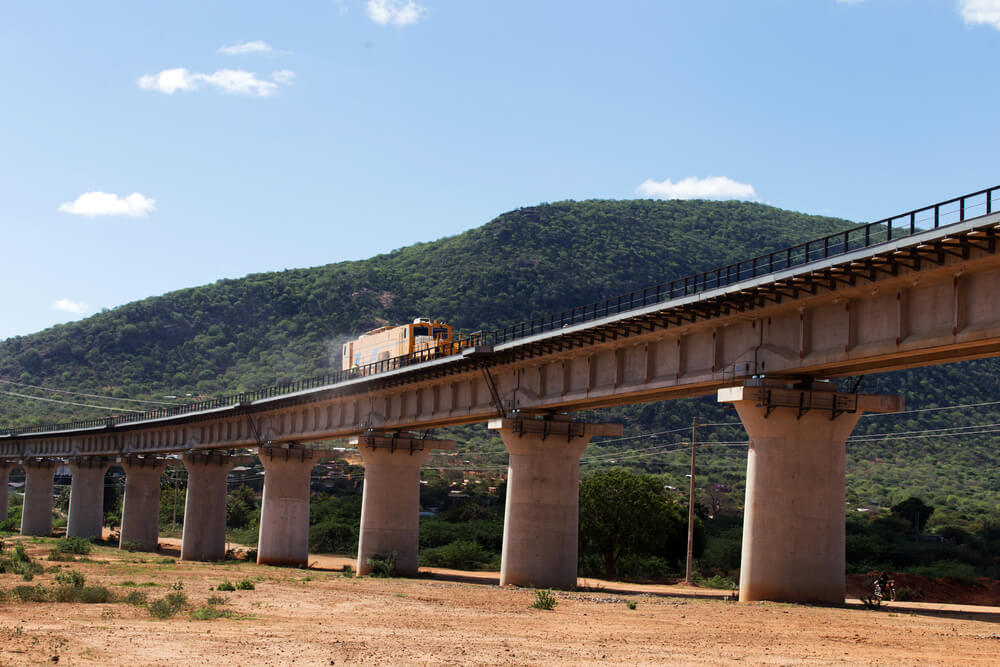The leaders of 50 African nations have been arriving in Beijing for days, followed by a grand welcome for a summit on economic cooperation that has the potential to alter the course of relations between the two major partners.
After three years, the ninth Forum on China-Africa Cooperation (FOCAC), a platform established in 2000 with the aim of connecting China's growing economy with the equally growing African market, will begin on Thursday.
Since the last summit three years ago, the circumstances have changed significantly, so the Beijing summit will bring, if not a full change in the current model of China-Africa economic relations, then certainly a long-term shift.
Despite this, Beijing will use the forthcoming forum to maintain its dominant position in Africa, and to do so, it will need to change its current model.
On the other hand, African guests come to Beijing not only as clients but also as partners who will ask for explanations and make demands.
The Chinese view of the new model
The new model of cooperation, i.e., China's position towards Africa as a large market, is primarily a consequence of the Chinese economy's reduced output during the pandemic and failed expectations of a strong recovery in the post-lockdown years.
China is still by far the largest economic partner in sub-Saharan Africa. A fifth of the regional economies' total exports go to China, and Chinese imports account for 16% of sub-Saharan Africa's total imports, accounting for a record $280 billion in trade last year.
China will continue to be interested in maintaining the current structure of its imports from Africa
China will undoubtedly continue to be interested in maintaining the current structure of its imports from Africa. The largest part of its imports from Africa, about 90%, consists of mineral fuel, ores, mineral raw materials, and metal.
However, plans to introduce goods and financial services to the African market are undergoing significant changes.
China's economic strategies towards Africa appear to have abandoned the previous model of building infrastructure through large loans. Model implemented within the framework of China's Belt and Road mega-project, which involved building roads, ports, railways, and other infrastructure with Chinese loans, has collapsed globally, with the experiences in Africa being particularly unfavourable.
Debt crisis
More than 30 out of a total of 50 African countries entered this year with a smaller or larger debt crisis towards China. Since 2000, China has placed more than $180 billion in loans to almost all African countries and several regional borrowers.
A relatively high 4% growth on the continent level is unlikely to be enough to amortise the increased liabilities of many African clients to Chinese creditors due this year.
Kenya's $6 billion loan from the Chinese Exim Bank for the construction of the Mombasa-Nairobi railway is a typical example of the unfavourable arrangements that have abounded in Africa over the last two decades.
 The slowdown in Chinese growth, along with the simultaneous problems with debt collection for built infrastructure in Africa, led to a drastic reduction in the placement of Chinese loans
The slowdown in Chinese growth, along with the simultaneous problems with debt collection for built infrastructure in Africa, led to a drastic reduction in the placement of Chinese loans
Despite assurances from Chinese investors that transport using the newly built railway would repay the investment, this did not happen, and the unfavourable loan severely damaged the Kenyan economy.
The slowdown in Chinese growth, along with the simultaneous problems with debt collection for built infrastructure in Africa, led to a drastic reduction in the placement of Chinese loans.
Compared to the record of nearly $30 billion that Chinese creditors had placed in Africa eight years ago, the volume of loans in 2022 has decreased to less than $1 billion. The following year, in 2023, that volume increased to around $4.5 billion, but even that is irreversibly far from the former records from the middle of the last decade.
At the forthcoming summit with China in Beijing, African partners will certainly seek to find new models that would help the sustainability of their economies in the conditions of the debt crisis.
Beijing's unfulfilled promises
Beijing also wants a different format for economic relations with Africa, but in a way that will once again be potentially unfavourable for African partners.
Due to the increasing closure of wealthy Western markets for Chinese products, particularly high-tech items, China is seeking compensation in the large African market.
High import tariffs imposed in the West on a wide range of Chinese goods are forcing Beijing to turn to economies with less strict regulations, such as African ones.
With the ongoing infrastructure construction debt crisis, Beijing is counting on much less resistance from its African partners than in the West to offloading its vast stockpiles of industrial products.
Beijing's previous promises to balance the exchange have not materialised
China's focus on exporting electric vehicles nearly stopped in the West due to tariffs reaching 100%, followed by equipment for solar power plants, 5G infrastructure, and other high-tech goods.
However, Beijing's previous promises to balance the exchange have not materialised, giving African partners many reasons to be wary of China's redefined strategies for their continent.
At the last Africa-China Summit in Dakar, Senegal, in 2021, China pledged to import goods worth $300 billion from Africa from 2022 to 2024 and announced several favourable loans to stimulate African exports and support small and medium-sized enterprises.
The forthcoming forum in Beijing will be an opportunity for African leaders to ask their Chinese partners for answers to a number of issues that burden their economic ties before stepping into a new phase.